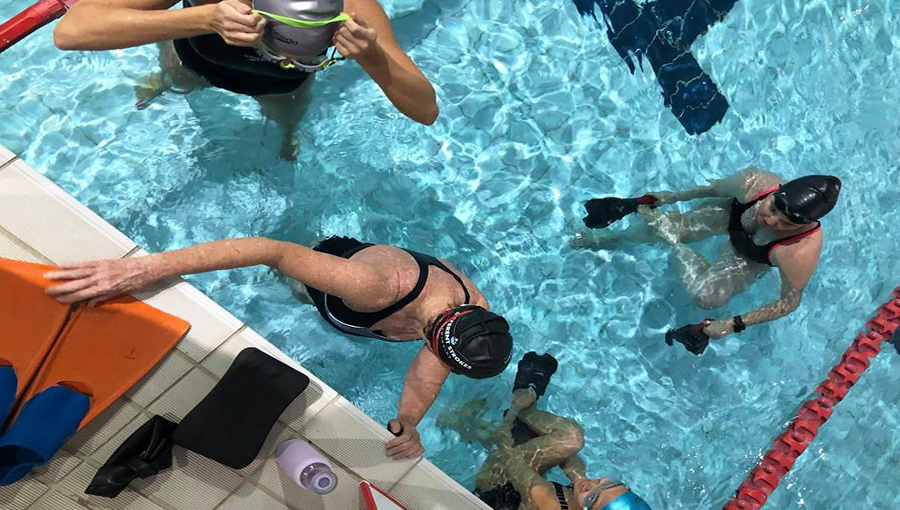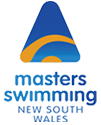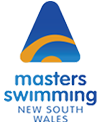
How do you know when you’re ready for squad?
Have you ever been at a public swimming pool early in the morning to find the lanes jammed full of swimmers looking up at a coach at the end of the lane? If they’re not looking at the coach, they’re looking at the clock intent on leaving the wall on time. There’s usually quite a bit of noise along with loads of water displacement as swimmers power up and down the lanes. It can all be a bit intimidating for the uninitiated and certainly enough to put you off. Why does anyone it?
There are many reasons why swimmers, once they reach a certain level, join a squad. From my experience, one of the key reasons, besides training for an event, or to maintain swim fitness, is for the comradery. Swimming is not a solo sport. Yes, we may swim alone but the swimming community is a strong and bonding group. Within each squad there is a unique culture which can envelope and raise you. Lifelong and deep friendships are a common occurrence.
But how do you know when you’re ready to make the move and sign up for squad training?
Often at my swim school, I see people who are well and truly ready for swim training. Yes, they can swim anywhere from 500m to 1,000 metres freestyle continuously, they are comfortable in the water and lap swim regularly. The only hurdle is their own belief in their swimming ability. There is a mental leap we all make when we join a squad.
Moving from lap swimming to squad training is big. I know, I made the leap after learning to swim freestyle at 48 years of age. I will admit it was one of the most daunting swimming milestones I hit. I remember spending a few minutes in the bathroom before each session. Initially there was no pleasure, just a lot of hard work. I was always nervous and didn’t feel at all adequate. There was so much I had to learn.
For a start, no one is harder on you than the coach. Yes, you need to follow the coach’s instruction and not deviate. You are in their hands. If the coach says go harder, then harder you go. Time repeats need to be adhered to. Interval training relies on swimmers’ keeping to the set times, stepping up the pace, easing off, stepping it up again. This, coupled with stroke correction, is the only way any of us get faster.
There are some keep aspects I had to be mindful of when I joined my first squad. Firstly, don’t lead the lane unless you’re supremely confident you can keep to the time and keep up the pace. When you’re new, it’s best sit toward the back until you and the coach have worked out where you fit in the pecking order.
I also learned I needed swimming equipment. Check with your squad about what equipment they use. Fins (flippers, usually the short training ones) and pull buoys are standard items, with hand paddles, leg bands and centre line snorkels additional requirements. Importantly, do ask about the ‘rules’ and lane etiquette before jumping into the pool, so you’re aware of how the squad operates.
In the early days I often burned out early in the session. Why? Because I went too hard in the warm up rather than realising it was just that, a warm up. It’s important for your body to get moving in preparation for the more vigorous and arduous sets following. Warm up is important to help minimise injury and maximise performance. My advice; don’t kill yourself during warm up, there’s much more to come!
There is no shame in sitting out a portion of the program when you first start, 100 metres at so at a time, if you need to catch your breath. I found I needed to build up slowly and trying to keep up with others who have been swimming with the squad for ages, was exhausting and unrealistic. Be guided by your coach.
Equally swim down is an important part of any session. If possible, don’t get out of the pool without doing the additional 100m or 200m easy swimming. Your muscles will thank you.
So how do you know when the time is right to join a squad? When you find you’re getting bored swimming laps, you’re hoping to improve your times in the pool, and you want to be part of community. I’ve found lifelong friends through the squads I’ve joined. I’ve also learned a lot about myself and what my body is capable of. If you get the chance, I would say give squad training a go, from my experience you’ll never look back.
Kari Baynes
Director, Different Strokes Swimming & Sydney Swimmers.

